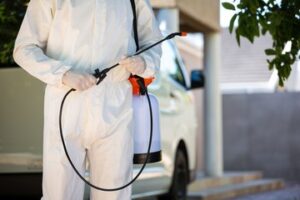A new deck can add value to your home and expand the space for entertaining. However, building a deck requires careful planning and preparation. It is important to get the proper permits and have a plan designed by an engineer.

A deck needs to be anchored properly, so it can withstand the elements. It is also important to use lumber suited for outdoor exposure. Contact Deck Builders Lexington KY for professional help.
Building a deck is an excellent way to expand your outdoor living space and improve the overall look of your home. However, you should be aware that the cost of a deck can vary dramatically depending on the size, complexity and features of the project. If you are planning a new deck, be sure to factor in all costs related to the construction and ongoing maintenance. This will help you decide whether or not the project is worth your investment.
Labor costs typically account for the majority of a deck’s total price tag. Labor rates may vary based on seasonal demand and local market conditions. In addition, hiring a professional will increase the overall cost of the project due to their expertise and experience.
Choosing the right materials can also significantly impact your deck’s price. Using low-cost materials will result in a cheaper deck, while high-quality materials will add more value to your home. Additionally, it is important to consider the potential future resale value of your deck when making your choice.
It is also important to follow local building codes and obtain a permit for your deck. Failure to do so could result in fines, forced removal of the structure, or a failed inspection. In addition, it is a good idea to hire a structural engineer or building inspector to inspect and sign off on the structure before you start construction.
The cost of the deck’s framing materials can be significant. These include posts, joists and the hardware necessary to support the deck. The type of wood used in the framing will also affect the final cost of the deck. Pressure-treated lumber rated for ground contact is the most common option, but composite and aluminum framing materials are available as well and are less prone to shifting and rot.
Lastly, you will need to factor in the cost of any additional features like stairs and railings. You should also prepare for extra expenses such as staining and sealing. You should also keep in mind that a deck will require regular cleaning and maintenance to keep it looking like new.
Design
Decks are a popular way to show off creative ideas. They’re also useful for navigating the creative process, as they help you organize your ideas and develop them into a complete story. But while it may seem simple to create a deck, there are a few key factors that must be considered when designing one.
First, consider the size of your deck and what features you want to include. Then decide on a design. There are several options available, including natural wood products and composite materials. Many people prefer natural wood, as it resists weathering and rot, is inhospitable to mildew, and discourages insect infestation. However, it can be more expensive than composite.
Before starting to build your deck, you must make sure that the ground is ready for the structure. This includes clearing and excavation work. If you’re building a multilevel deck, the ground may need to be leveled before construction can begin. This can significantly increase the cost of your project, so it’s important to know how much it will cost before you start.
Another factor to consider is the weather conditions in your area. The prevailing winds can affect your deck’s stability and comfort. To avoid this, you can add features like windbreaks and privacy walls. You can also install slopes and drainage systems to prevent water pooling on your deck.
It’s also important to choose a design that will match your home’s architecture. This will enhance the overall look of your deck and make it a cohesive part of your outdoor space. For example, you can match your deck’s colors and materials with your doors and windows.
While it’s not necessary to use a deck template, you should keep in mind that consistency is essential. Your deck should have a consistent visual style to make it easier for your audience to follow along. The deck should also be concise and contain a clear narrative that supports your key messages. Finally, it’s important to practice your deck before you present it to the public. This will ensure that your presentation is effective and engaging.
Materials
When it comes to building a deck, you need to consider the materials you use. Choosing the right material can help you get the most value for your money and ensure that your deck lasts a long time. The national average price for materials is $20 per square foot, but this can vary based on the type of deck and the amount of materials you need.
The most popular decking material is pressure-treated wood. This is a durable choice that resists rot and termites, but it can look less natural than other options. It also requires regular maintenance, including reapplying weatherproofing treatments. Other popular choices include redwood and cedar, which are softer and more expensive but hold up well to wear and tear. Cumaru is another tropical hardwood option that’s resistant to rot and insects. Its dense construction makes it more expensive than other options, but it is attractive and withstands heavy foot traffic.
If you want to go green, consider using composites made of recycled plastics. This is a cost-efficient alternative to wood and can be made to mimic the look of natural wood. Composites are also easier to maintain than natural wood, but they still require regular care to keep them looking new.
Regardless of the material you choose, it’s important to plan out the size and layout of your deck before you start work. Check with local building codes and homeowner associations for permits and building requirements. You should also call 811 to have underground utilities marked before digging holes for the deck footings. Once you have all the necessary permits, you can begin to build your deck.
When choosing materials for your deck, you need to balance the qualities that create beauty with those that enhance longevity. You also have to consider the level of sustainability, how your deck will be used, and the costs of upkeep and replacement.
The most popular deck materials are wood and composites, which both offer advantages and disadvantages. Wood is a natural material that ages gracefully and looks beautiful, but it can be damaged by excessive exposure to sunlight. Wood is also a poor choice for areas near water plants, as it can be harmed by water and moisture.
Contractors
Choosing a deck builder is an important decision for homeowners looking to improve their outdoor living space. A custom deck can transform your yard into a relaxing oasis where you can spend time with family and friends, enjoy nature from the comfort of your home, and even increase your property value. When selecting a contractor, consider the following factors:
Experience and Reputation
A professional deck builder has the experience and expertise to handle every aspect of your project from start to finish. They will understand the details of your vision and bring creative solutions that enhance the functionality and beauty of your new outdoor space. They will also have an understanding of local building codes and permits, minimizing the risk of costly mistakes and delays.
Inquire about the builder’s previous projects and ask for a portfolio to review. Look for positive client feedback and a high level of customer service. You should also make sure the builder is licensed and insured. This will protect you in the event of accidents or damage during construction and demonstrate their commitment to professionalism.
Communication and Transparency
A reputable deck builder will set clear expectations for the project by providing an estimated timeline from start to finish. This will help you plan your budget and schedule accordingly. Additionally, you should ensure that the builder will communicate with you regularly throughout the project, ensuring that you are on the same page.
The builder you choose should also be able to provide guidance on materials based on your preferences and local climate. They will be able to explain the pros and cons of various composite decking materials, as well as their durability and maintenance requirements. They can also offer a variety of finishes and accents to enhance the aesthetics of your new deck.
A good deck should be able to withstand the elements and remain beautiful for years to come. To ensure this, the builder should use quality materials and advanced building techniques. For example, they may recommend using helical pile foundations, which are more durable than traditional wood buried in the ground approaches. They may also suggest the use of joist protection tape, which will protect joists from moisture damage and prolong their life.



